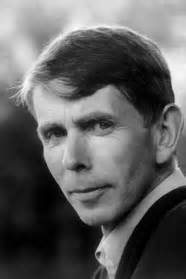A Quote by Henry Ford
Records can be destroyed if they do not suit the prejudices of ruling cliques, lost if they become incomprehensible, distorted if a copyist wishes to impose a new meaning upon them, misunderstood if we lack the information to interpret them. The past is like a huge library, mostly fiction.
Related Quotes
We see it in attempts on Capitol Hill to impose gag rules on rules on doctors on what they can say to their patients about family planning. And we certainly see it now with an effort by the government to tap our phones; invade our medical records, credit information, library records and the most sensitive personal information in the name of national security.
If the Africans and Arabs were ruling Spain from 711 to 1492, had they destroyed the Catholic church, they still would be ruling Spain to this day because that's the institution that held them together. The institute that gave them the only hope was their church. This is why we are so depressed because the institutions of hope that would cause fulfillment amongst us has either been destroyed or laughed at.
The library will endure; it is the universe... We walk the corridors, searching the shelves and rearranging them, looking for lines of meaning amid leagues of cacophony and incoherence, reading the history of the past and of the future, collecting our thoughts and collecting the thoughts of others, and every so often glimpsing mirrors, in which we may recognize creatures of the information.
When we enter a new situation in life and are confronted by a new person, we bring with us the prejudices of the past and our previous experiences of people. These prejudices we project upon the new person. Indeed, getting to know a person is largely a matter of withdrawing projections; of dispelling the smoke screen of what we imagine he is like and replacing it with the reality of what he is actually like.
I think, when you are writing non-fiction, you feel there's an obligation to get it absolutely right, so all your factual details have to be, have, you know, to go through a long list of them and tick them. I'm not saying that's not important in fiction, but I think you have a bit more leeway; you can suit yourself.
A library represents the mind of its collector, his fancies and foibles, his strength and weakness, his prejudices and preferences. Particularly is this the case if, to the character of a collector, he adds - or tries to add - the qualities of a student who wishes to know the books and the lives of the men who wrote them. The friendships of his life, the phases of his growth, the vagaries of his mind, all are represented.
The divide of race has been America's constant curse. Each new wave of immigrants gives new targets to old prejudices. Prejudice and contempt, cloaked in the pretense of religious or political conviction, are no different. They have nearly destroyed us in the past. They plague us still. They fuel the fanaticism of terror. They torment the lives of millions in fractured nations around the world. These obsessions cripple both those who are hated and, of course, those who hate, robbing both of what they might become.
I don't think that people are necessarily going to films simply because they were adapted from comics, though I could be wrong. Comics aren't really misunderstood either, they've just been mostly silly for the past century, and those genre-centered stories have found their way into the movie theaters over the past couple of decades because a generation who grew up reading them has, well, grown up.




































